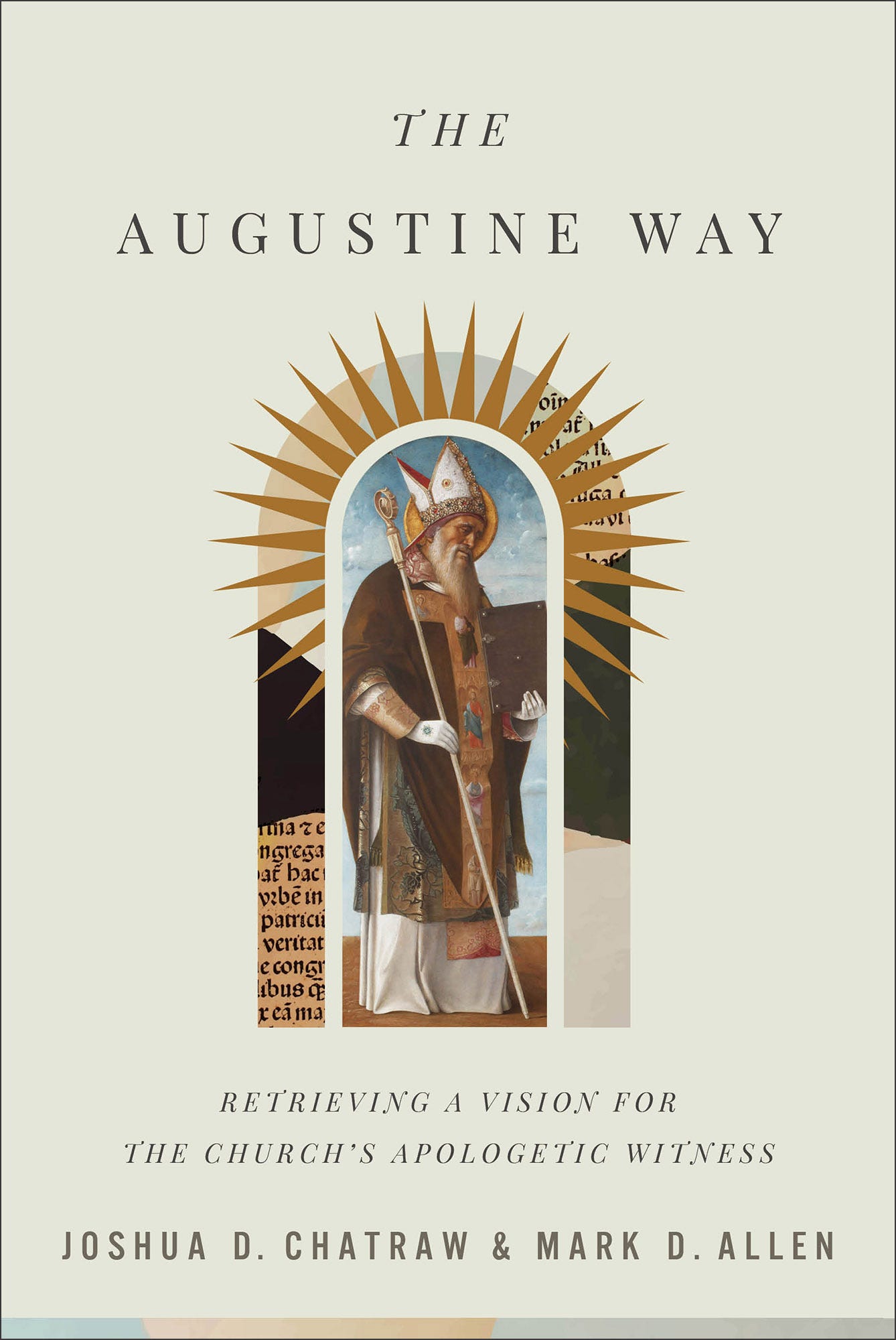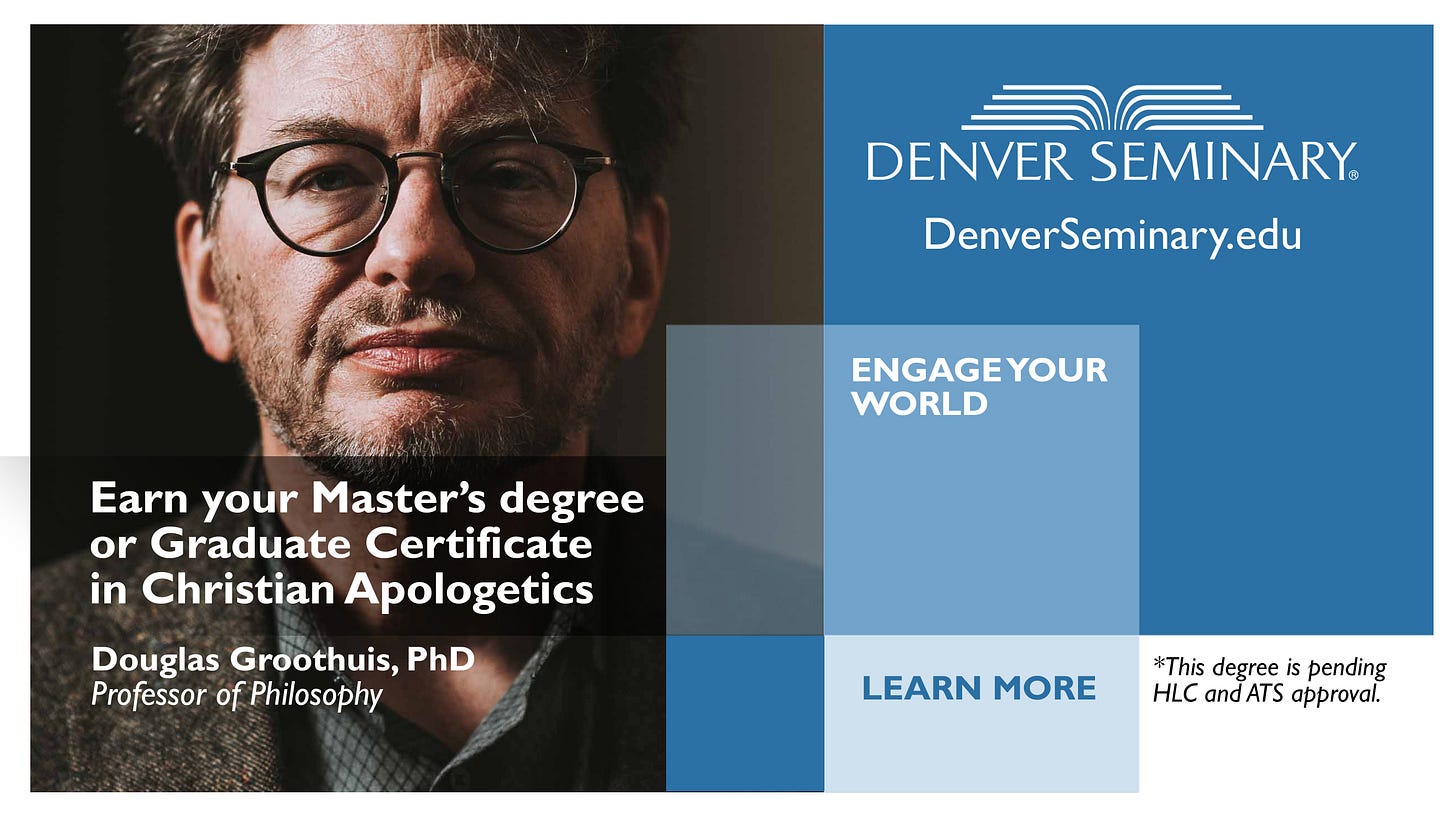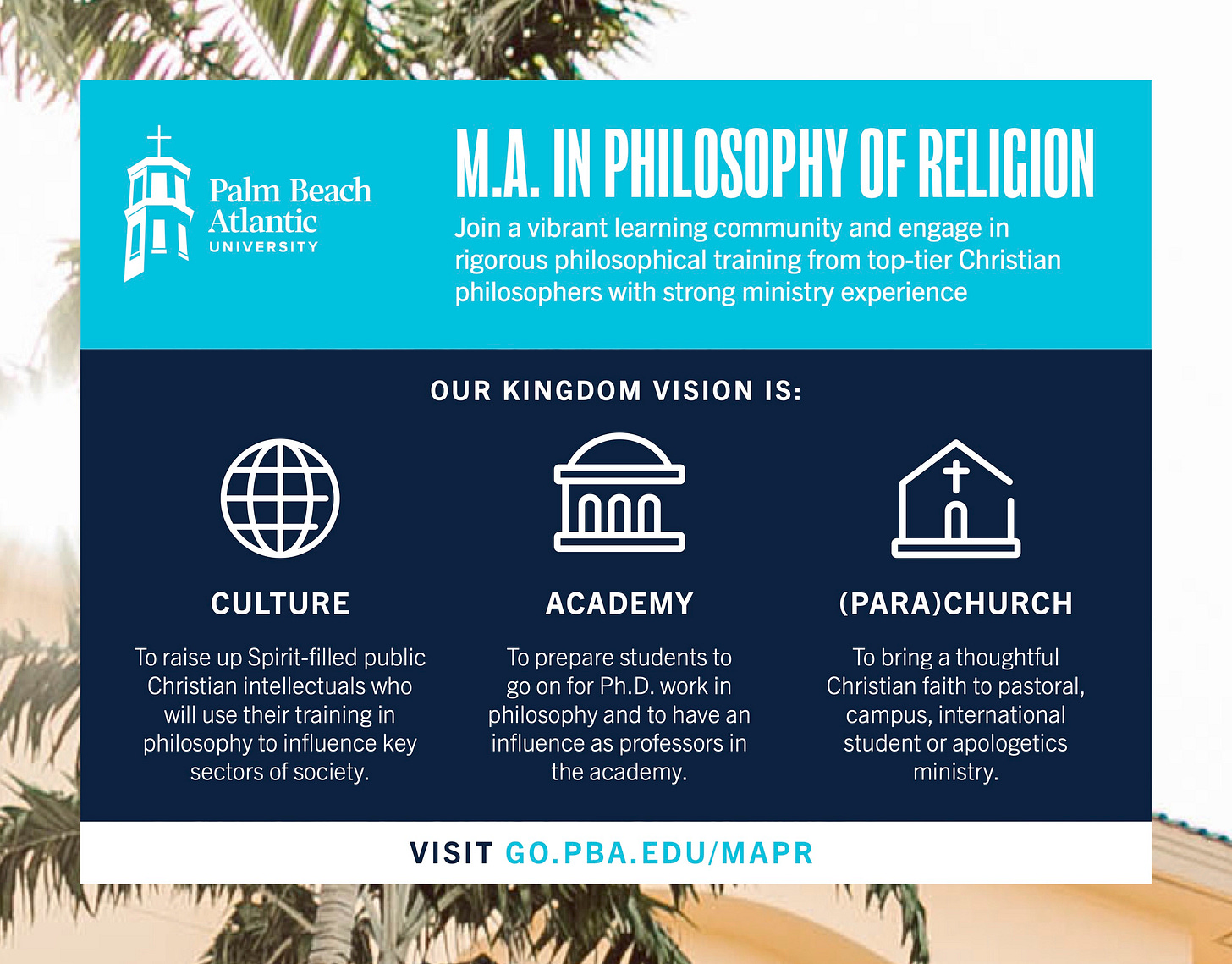I recently completed a Zoom call with a Gen Z who literally spoke to me from a bedroom closet as we met online to unpack some of their doubts about Christianity. This person seemed anxious that they might be caught, possibly because of family dynamics, and found a safe place online in which to discuss difficult questions. It was a good meeting, the issues were addressed, and the call ended with prayers. All of this would not have been possible if it were not for a relatively new ministry called Talk About Doubts (talkaboutdoubts.com).
After watching many deconversion videos and reading related stories, Dr. Jonathan McLatchie, founder of Talk About Doubts, was often persuaded by the number of people who deconstruct without really understanding what may be said in favor of Christianity. He was struck by how many were not even aware of the most robust cases for it.
McLatchie observed that these people would try to get their doubts answered by pastors or parents who did not know the answers to their questions or would not able to provide advice on how to reason and think through these issues to form a strong religious epistemology. He wished he’d been able to have answered some of their questions before they deconstructed. So, he began an outreach through his own website, and would receive about one or two inquires per week.
“Back in 2016, I started mentoring Christians, as well as ex-Christians, who wanted to explore whether there was a rational road back to faith,” McLatchie explained.
Realizing he could reach more people by creating a team of experts who could meet one-on-one with people to talk about their doubts, in December 2021 he launched TalkAboutDoubts.com. McLatchie asked about 20 of his friends and colleagues to become team members to help answer daily inquiries.
“My heart behind this ministry is to give people the opportunity to hear the best cases for Christianity before making a decision to abandon their Christian faith,” he said.
The inquiries come from a contact form people fill out online, stating what they are struggling with, and then they are connected to people who have expertise in that subject. McLatchie’s team has now grown to 70 volunteers, which include archaeologists, Old and New Testament scholars, textual critics, biologists, physicists, philosophers, psychologists, pastors, and apologists.
Every person on the team is someone he knows personally or someone who was recommended to him by a trusted friend. McLatchie occasionally has people he doesn’t know ask to be on the team, but he rarely allows that because he needs to trust them and have confidence in their expertise and integrity. Once an inquiry comes in, it is matched with the appropriate team member who then reaches out to the inquirer to schedule a private Zoom meeting in which they can personally discuss their doubts and questions. Often these Zoom meetings end up developing into long-term mentoring relationships.
“We often get very encouraging emails from inquirers who’ve gone through the process, and have some testimonials on our website of people who have been helped by our ministry,” McLatchie said.
The most common questions that come into TalkAboutDoubts.com relate to the evidence for the resurrection, the plausibility of miracles, and David Hume’s objections to miracles. Hume states a miracle is the least probable explanation for the resurrection historically because miracles violate the laws of nature. However, McLatchie points out that a miracle by definition does exactly that—it deviates from the normal course of nature.
The way McLatchie addresses the miracle of the resurrection is by discussing the maximal data approach to this event. This includes the verifiability of the Gospel accounts as biographical data from eyewitnesses. He says that the nature of the disciples’ claims makes it highly unlikely that the Gospel writers were mistaken in their accounts due to the following events: group sightings of Jesus, physical contact with Jesus, conversations with Jesus, and eating with Jesus—once Jesus even cooks for His disciples. It is very difficult to be mistaken about these kinds of circumstances, McLatchie explained.
“When we look at the context of their claims, it is improbable that the disciples were setting out to deliberately deceive people because of the persecution they faced,” he said. “That (the persecution) goes far in establishing that they were at least sincere—that they weren’t lying.” Where scholars disagree is what explanation provides the best explanatory power for these accounts. McLatchie and his team argue that the best explanation is that Jesus really did rise from the dead.
Other common questions that come in surround matters like the problem of evil or science issues, like the compatibility of the Bible with the theory of evolution. But a lot of people struggle with emotional doubts, too, and that is an area that is not simply addressed with facts or evidence, McLatchie explained. “That requires a different kind of approach,” he said. “And that is not my gifting. Fortunately, we have others on the team with that gifting, and they get those kinds of inquiries.”
McLatchie’s emphasis is to offer people a robust religious epistemology to avoid common intellectual pitfalls that lead to leaving the faith. A new term he calls “disconfirmation bias” is common in people who have contacted the ministry. (Confirmation bias is when one pays attention to the observations and facts that tend to support one’s prior conclusions, and to ignore those facts that disconfirm it.) Disconfirmation bias is where one becomes so anxious about the bias of the opposing viewpoint that their ability to evaluate the data impartially is impaired—they become more trusting in facts, evidence, and sources that disconfirm their beliefs than in those that confirm it.
Another common intellectual pitfall is to equate certain questions with objections, and McLatchie points out that not all questions are objections to the faith. He explains that for a question to become an objection, one needs an initial premise. For example, a question that is often raised is what happens to those who never hear the gospel. McLatchie explains that we don’t exactly know what happens to them, but the mere fact that we don’t know is not a reason to conclude that God does not have a morally just arrangement that we are simply not privy to. This is a question that he states does not logically translate to an objection.
McLatchie also teaches people to distinguish between high-stakes and low-stakes objections. A high-stakes objection would be to the deity of Christ or the resurrection—the very essence of Christian belief. A low-stakes objection is something where Christians can agree to disagree because it is not essential to orthodoxy—like Calvinism versus Arminianism or a young-earth view of creation versus an old-earth view. He encourages those who struggle with the low-stakes objections to simply change their view on the subject instead of rejecting the faith altogether, since a low-stakes objection does not impact core Christian doctrines.
The differences in the stakes can be life changing. One young man, Justin, reached out to Talk About Doubts a couple of years ago, when the ministry was just starting. He had a high-stakes objection to the overall question of how we can know that Christianity is true. Over a nine-month period, McLatchie mentored him, getting assistance from other team members, and eventually Justin became confident that Christianity is true. Their relationship developed into a great friendship where Justin actually invited McLatchie to be a groomsman in his recent wedding!
Those who are struggling with doubts can not only find a place to get their intellectual questions answered, but may also develop mentoring relationships that bless all involved. The Talk About Doubts ministry is active in developing a community online via a Discord account, Zoom hangouts, and panel Q & A’s on the YouTube channel.
McLatchie plans to continue to develop relationships with his teammates with weekend retreats, and is also planning to host a retreat for doubters and mentors to spend time together networking and fellowshipping. He also wants to establish an outreach to pastors, or those in full-time ministry positions, who struggle with doubt to have a safe space to process those issues.
Since its beginning, the Talk About Doubts ministry has helped over 500 people and continues to grow in its outreach. For more information, please visit talkaboutdoubts.com.
—Lisa Quintana earned her Master’s Degree in apologetics at Talbot School of Theology, Biola University. She is the Lead Instructor both at Christian Life College (study center), and School of the Bible located at City Church in Madison, Wisconsin. She speaks and writes on apologetics topics, with a passion to use it as a tool for evangelism to reach a skeptical culture. She wants people to know Jesus as the Author of love and life. Find her online at thinkdivinely.com.
[sponsored]
The Augustine Way
Retrieving a Vision for the Church’s Apologetic Witness
What can we learn from Augustine about apologetics? This book shows how Augustine defended the faith in late antiquity and how his approach to engaging the culture has great significance for the apologetic task today.
Joshua Chatraw and Mark Allen, coauthors of the award-winning Apologetics at the Cross (an Outreach magazine and Gospel Coalition Resource of the Year), recover Augustine's mature apologetic voice to address the challenges facing today's church. The Augustine Way offers a compelling argument for Christian witness that is rooted in tradition and engaged with contemporary culture. It focuses on Augustine's best-known works, Confessions and The City of God, to retrieve his scriptural and ecclesial approach for a holistic apologetic witness.
This book will be useful for students as well as for pastors, church leaders, and practitioners of Christian apologetics. It puts pastors and churches back at the center of apologetics, transcending popular contemporary methods with a view to a more effective witness in post-Christendom.
“I teach a whole course on what makes theology Augustinian because I believe Augustine has much to offer today's church. I therefore welcome and resonate with the thought experiment behind The Augustine Way—namely, to articulate what Augustine would likely say and do as a pastor and defender of the faith if he were alive today. One thing is sure: Augustine would direct his appeal to hearts as well as minds by commending desires as well as doctrines in preaching the truth, goodness, and beauty of the gospel.”
— Kevin J. Vanhoozer, research professor of systematic theology, Trinity Evangelical Divinity School
“In contemporary times, it is easy to associate apologetics with winning rather than witnessing, where apologetic training becomes an exercise in controlling the conversation. Chatraw and Allen show us a more excellent way: a nonanxious posture of persuasion that is critical and constructive, intellectual and imaginative, humble and hopeful. This accessible retrieval of an Augustinian apologetic calls us to recenter the local congregation and to renew the polluted cultural ecosystems where we live.”
— Justin Ariel Bailey, associate professor of theology, Dordt University
Find The Augustine Way at Amazon, Baker Book House, and other major booksellers.
100% online option available. For more information, visit the website here or contact the HCU School of Christian Thought at +(281) 649-3269 or sctdean@hbu.edu.
Quick answers to tough questions about Jesus' life, ministry, and divinity.
Is there archeological proof that Jesus existed? Did Jesus ever actually claim to be God? Is Jesus really the only way? There's a good chance that every Christian will be asked tough questions like these at some point in their lives, whether from combative skeptics, curious seekers, or even doubts in their own minds.
To help followers of Christ answer questions quickly and confidently, Josh and Sean McDowell adapted the wisdom from their apologetics classic Evidence That Demands a Verdict into an accessible resource that provides answers to common questions about Jesus.
Evidence for Jesus answers these questions and more:
Is there evidence that Jesus was real?
Did Jesus ever actually claim to be God?
What makes Jesus unique from other religious figures?
Is Christianity a copycat religion?
What does the Old Testament teach about the coming Messiah?
Did Jesus really rise from the dead?
Why does the resurrection of Jesus matter?
Evidence for Jesus will equip brand new believers and lifelong Christians alike with time-tested rebuttals to defend their faith in Jesus against even the harshest critics.
See our recent excerpt from Evidence for Jesus on “dying and rising gods” here.
Find Evidence for Jesus at Amazon, FaithGateway, and other major booksellers.
Divine Love Theory
How the Trinity Is the Source and Foundation of Morality
What if the loving relationships of the Trinity are the ultimate, objective source for living morally?
Adam Lloyd Johnson injects a fresh yet eternal reality into the thriving debate over the basis of moral absolutes. Divine Love Theory proposes a grounding for morality not only in a Creator but as God revealed in the Christian Scriptures—Father, Son, and Spirit eternally loving one another.
Johnson contends that the Trinity provides a remarkably convincing foundation for making moral judgments. One leading atheistic proposal, godless normative realism, finds many deficiencies in theistic and Christian theories, yet Johnson shows how godless normative realism is susceptible to similar errors. He then demonstrates how the loving relationships of the Trinity as outlined in historic Christian theology resolve many of the weakest points in both theistic and atheistic moral theories.
“Johnson leaves no stone unturned, his research is exceptional, and his topic and treatment of it are first-rate. I very strongly recommend this book.”
— J. P. Moreland, distinguished professor of philosophy, Talbot School of Theology, Biola University
“Johnson’s book is very well done and very helpful to the reader; I love the historical overview. Also, his Evolutionary Debunking Argument against Wielenberg’s position is really good. Lastly, I found the part on imaging the obedience in the Trinity as a basis for the obligation to obey God creative and interesting.”
— William Lane Craig, professor of philosophy, Talbot School of Theology and Houston Christian University
See our recent excerpt from Divine Love Theory here.
Find Divine Love Theory at Amazon, Christianbook.com, and other major booksellers.
Christian apologetics helps to quiet the doubts of those we are witnessing to and helps to effectively carry out the mission of God in the world.
The Master of Arts or Graduate Certificate in Christian apologetics* equips students in the discipline of defending the Christian worldview as objectively true, compellingly rational, and existentially pertinent to the whole of life. In addition to core courses in Bible, theology, and mentoring, through this degree students will learn the proper method of apologetics, the arguments for the existence of God, the finality of Christ, and the reliability of the Bible, as well as how to bring the gospel to those in other religions, learn basic biblical ethics, how to respond to contemporary moral questions, and how to respond intelligently to challenges to the biblical worldview.
*These degrees are pending HLC and ATC approval.
LEARN MORE AND APPLY AT:
https://denverseminary.edu/program/master-of-arts/christian-apologetics/
To learn more, visit go.pba.edu/mapr, or email Dr. Paul Gould, Director of the MA in Philosophy of Religion program, at Paul_Gould@pba.edu.








I can also attest to the importance of the evidence available for the existence of God, the reliability of the Bible, and the reality of the life, death, and resurrection of Jesus Christ. As an investigative reporter and former atheist, I looked carefully at the evidence for all three and discovered the Truth. Wonderful article and great ministry!
As a former sceptic myself I personally know the importance of the evidence behind Christianity and being able to discuss it with those searching